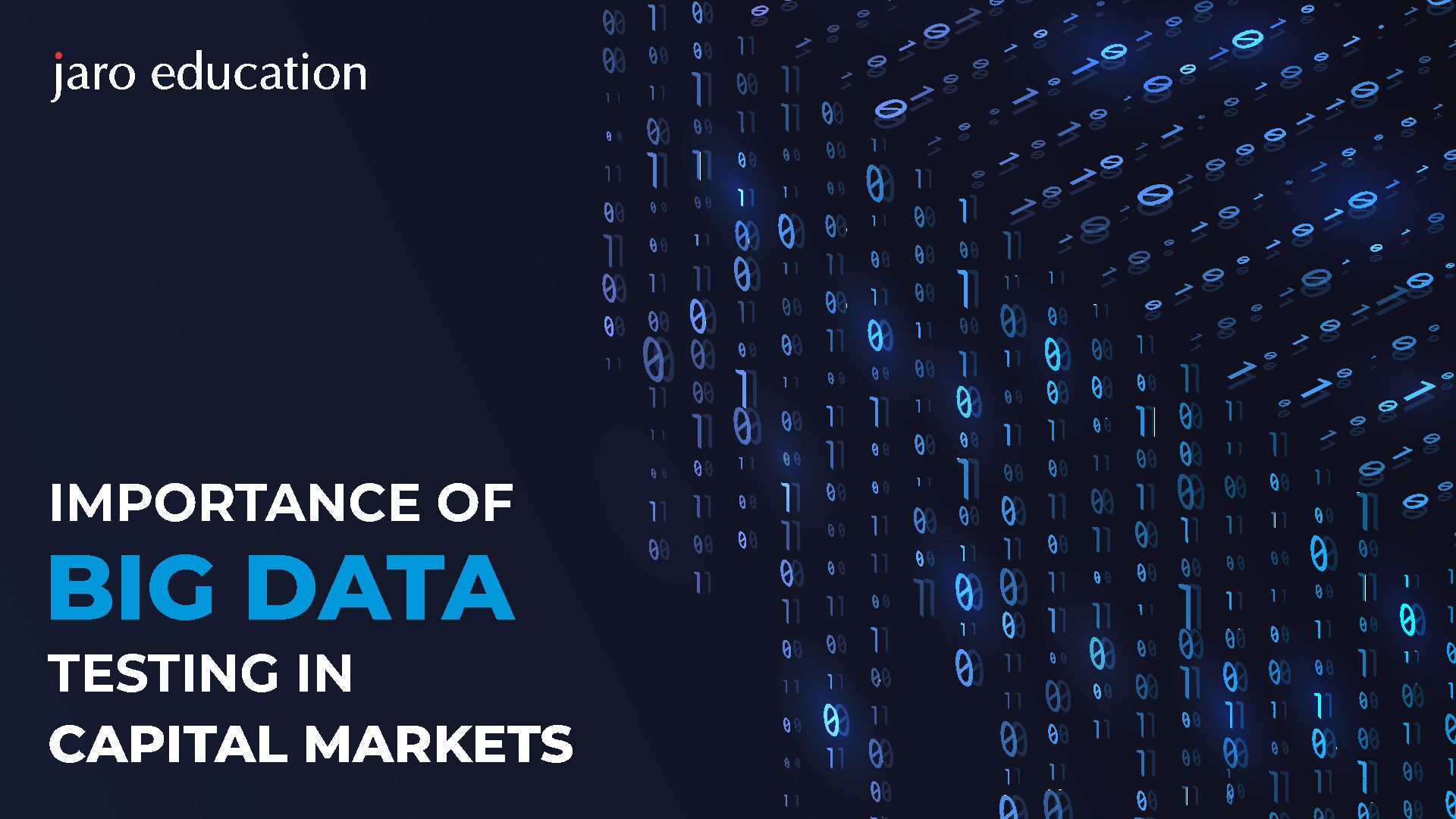Experts predict that by 2025, more than 463 exabytes of data will be produced each day, which is the equivalent of around 212,765,957 DVDs. Data quality and consistency testing are two important aspects of big data processing that must be done before accurate insights can be generated.
The ability to examine a large number of data sources may prove to be a game-changer as capital markets increasingly rely on big data to enhance income, minimise expenses, and comply with regulatory requirements. An MBA in Financial Markets from NSE Academy and GNIMS will help you best learn to process all the finance-related data.
4 Major Importance of Big Data testing in capital markets1. It isn’t easy to handle large data volumes efficiently with conventional methodologies
The financial markets depend substantially on data to function properly. Access to enormous amounts of structured (market data, transactional data, and reference data) and unstructured (newsfeeds from the web and social media platforms, corporate filings, and economic indicator information) data is available to you. Executive MBA in Finance is a necessary course to handle all types of big data.
Traditional data processing methods were not designed to improve the quality of enormous data sets or make sense of them; instead, they were designed to do the opposite. Big data technology may be used to analyse large amounts of structured and unstructured data to uncover logical patterns that can be used for interpretation and insight.
- Difficulty in Handling Large Data Sets with Conventional Methodologies
With big data testing, the ultimate aim is to guarantee that data coming from various sources is handled without mistakes. For example, tests such as data ingestion testing determine if the data included in files, databases, and near real-time records have been properly retrieved and reliably fed into a file system before being stored.
To ensure that the data is accurate, comparing the ingested information with the source information is necessary. Processing big data with traditional methods is very difficult. Using conventional methods like accounting everything by hand still has a lot of scope for errors, and these errors cannot be rectified when handling huge amounts of data.
- Smarter analysis
Improved monitoring has been a major focus in the compliance sector to identify and restrict exposures before they become a problem. This is preferable to raising a red flag after a problem has occurred.
Companies are increasingly turning to computers to do more and more of the labour, which is understandable, given the complexity and volume of information that must be scrutinised.
MBA in Financial Markets will help you to analyse all the data efficiently.
- Big data testing has several advantages
There are several advantages of Big Data testing for enterprises. First, to improve corporate operations, Big Data testing is essential. It may help with anything from enhancing decision-making to assuring smooth data integration.
Quality testing of Big Data is performed to guarantee that only correct and meaningful information makes it into the decision-making process. Aside from that, Big Data testing has been shown to reduce downtime, increase data security, and avoid data inconsistencies, all of which contribute to enhancing an organisation’s reputation overall.
Big data testing is more crucial for companies now because of the huge amount of data generated and processed every day. Professional courses like MBA in Financial Markets help a lot to understand and come up with a better strategy to analyse the data.
Conclusion
Market misuse monitoring is a serious concern when it comes to the era of mobile devices and hybrid work. To accurately detect possible financial wrongdoing and successfully comply with relevant compliance rules, it is essential to validate the relevance of unstructured data for monitoring.
The duration of the MBA In Financial Markets course is 18 months. Everyone with a keen interest in big data, a bachelor’s degree with more than 50% aggregate is eligible for the course.
Executive MBA in Financial Markets< from NSE Academy and GNIMS would help you in understanding the core of the capital market. Learn about the depth of finance and capital markets with this exclusively designed course.
FAQs
- Who is eligible for the Executive MBA in Financial Markets program?
The student must have earned a Bachelor’s degree (in any subject) or an equivalent degree with a minimum of 50 percent aggregate marks.
- How can I enrol for the Executive MBA in Financial Markets course?
It is possible to enroll yourself by just visiting the GNIMS website. An AICTE-approved joint certification course lasting 18 months, the Executive MBA in Financial Markets is designed to provide quality education to supply capital markets professionals to the financial services industry in collaboration with the National Stock Exchange of India Limited (NSE).
- What is the fee structure for the Executive MBA in Financial Markets program?
The total cost of this course is INR 1,51,000 for 18 months.
- What is the exam assessment structure for the Executive MBA in Financial Markets program?
The total duration of this course is 18 months (including examinations). The Course duration is 18 months and it is divided into 4 Semesters. The exam assessment is semester-based in MBA in Financial markets program.






